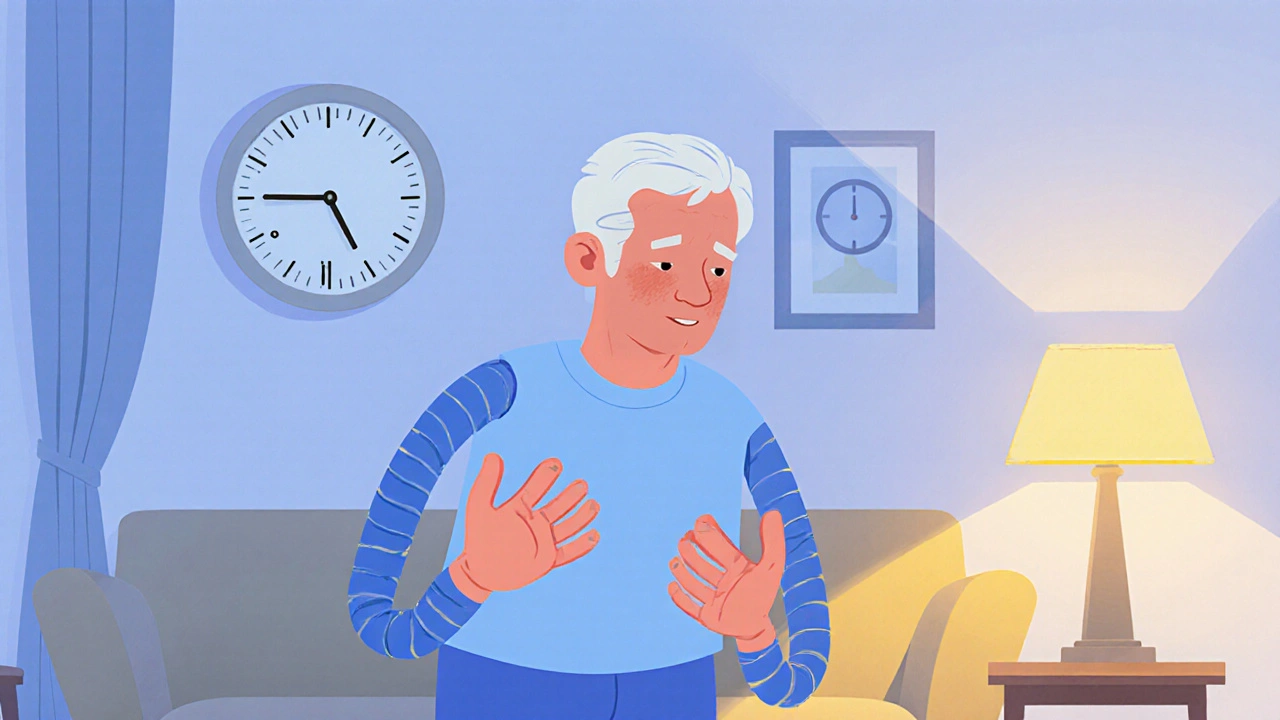Parkinson's Disease: What You Need to Know Today
Parkinson's disease is a brain disorder that makes it hard for the body to move smoothly. It happens when certain brain cells that produce dopamine start to die. Without enough dopamine, muscles get stiff, tremors appear, and balance gets shaky. If you or someone you love is dealing with these changes, understanding the basics can make life a lot easier.
Common Signs You Might Spot
Most people notice a tremor in one hand or foot first. This shaking often shows up when the limb is at rest and may lessen when you move it. Stiffness, called rigidity, can make everyday tasks feel like you’re moving through thick syrup. Slow movement, or bradykinesia, means simple actions like buttoning a shirt take longer. Balance problems and a shuffling walk are also common as the disease progresses.
Beyond movement, some experience mood changes, sleep trouble, or a softer voice. These non‑motor symptoms are just as important because they affect overall well‑being. Spotting them early lets you talk to a doctor about both meds and lifestyle tweaks.
Medication Basics and How They Help
The go‑to medicine for Parkinson's is Levodopa, which the brain turns into dopamine. It’s usually combined with Carbidopa to keep more of the drug working where it’s needed. Most people start on a low dose and increase it gradually to avoid side effects like nausea or dizzy feelings.
Other drug classes include dopamine agonists (like Pramipexole) that mimic dopamine, and MAO‑B inhibitors (like Selegiline) that slow dopamine breakdown. Sometimes doctors add a medication called Amantadine to help with tremor. The right mix depends on age, symptoms, and how the disease is spreading.
It’s key to take meds exactly as prescribed. Missing a dose can cause “off” periods where symptoms flare up. Setting alarms or using a pill organizer can keep you on track.
Besides prescription drugs, some people explore supplements such as CoQ10 or Vitamin D. While research is mixed, they’re generally safe when you talk to your doctor first. Exercise, a balanced diet, and staying active are proven ways to keep muscles strong and may slow symptom progression.
Living with Parkinson's isn’t just about pills. Physical therapy can teach tricks for safer walking, while speech therapy helps keep your voice clear. Support groups, either in person or online, give you a space to share experiences and learn from others.
At Los Algodones Medication Guide we aim to give you clear, up‑to‑date info on medications, side effects, and practical tips. Whether you’re looking for the latest drug options or want advice on everyday coping strategies, our resources are built to empower you.
Remember, Parkinson's disease is manageable. With the right treatment plan, regular exercise, and a supportive community, you can maintain a good quality of life. Keep asking questions, stay informed, and don’t hesitate to reach out for professional help when you need it.

- 12 Comments
Explore how idiopathic orthostatic hypotension connects to Parkinson's disease, covering shared mechanisms, diagnosis, treatment, and early warning signs.

- 11 Comments
Learn how the triple combo carbidopa‑levodopa‑entacapone reduces off time in Parkinson's patients, its mechanism, dosing tips, and evidence supporting its use.

- 5 Comments
A complete, up‑to‑date guide on Symmetrel (amantadine) covering what it is, approved uses, dosing tips, common side effects, drug interactions, and safety advice.